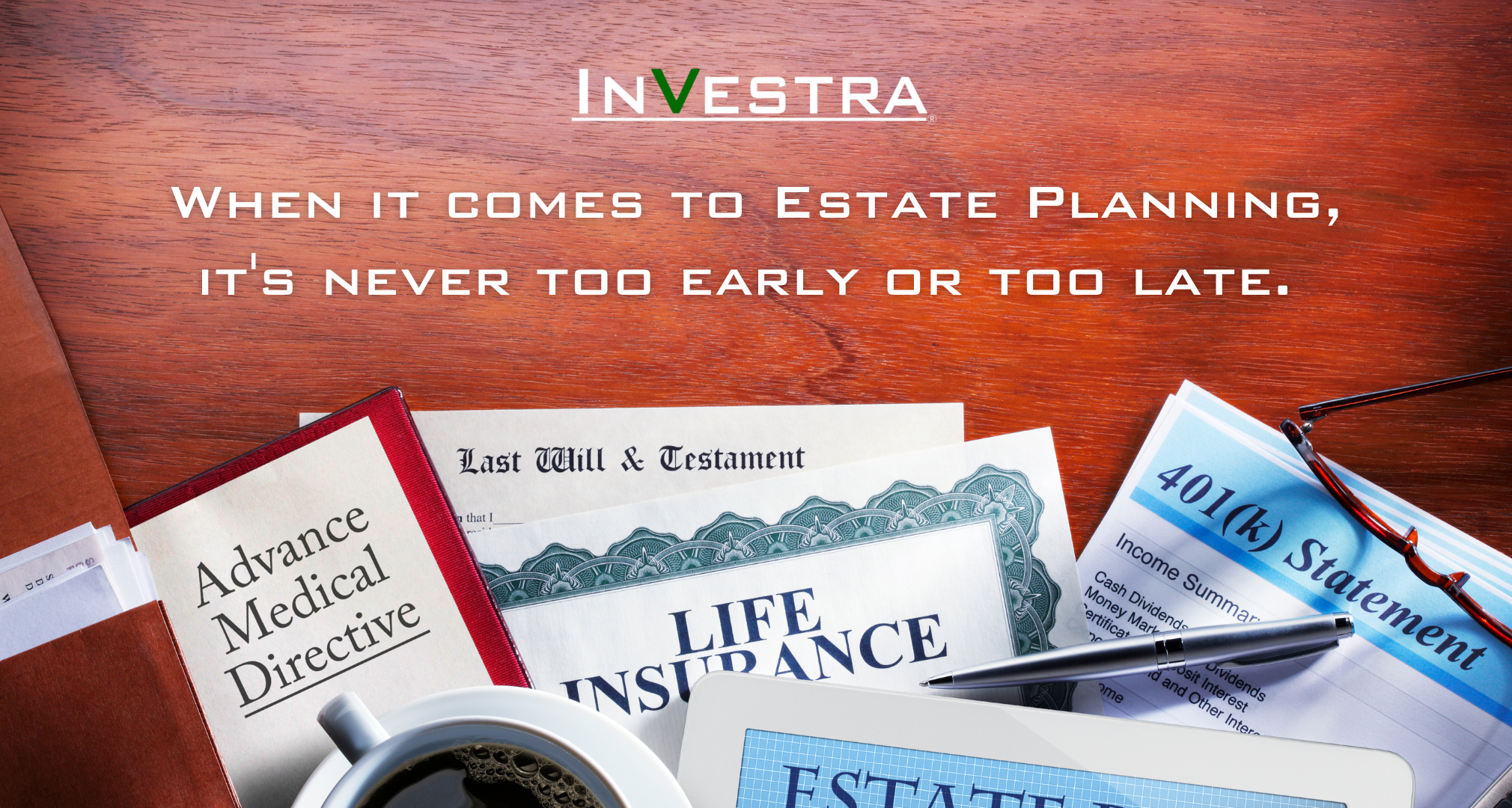If you’re nearing retirement, estate planning is likely at the forefront of your mind. However, estate planning is not just for retirees. As people born in younger generations continue to face the challenge of rising costs of living, the need for generational wealth transfer becomes increasingly important. Often, clients reach out to discuss their wills and may feel uneasy if they do not feel they have a sufficient financial safety net for their children if something were to happen to them. Whatever your motivation, having a well-planned estate is a worthwhile goal.

The concept of an “estate” is commonly associated with particularly wealthy people, but estate planning is for everyone – wealth aside. Anyone can benefit from having an estate plan, regardless of their financial status. What an estate plan does is enable you to protect your assets, minimize the tax impact, and allow for peace of mind for your loved ones. Although daunting, getting started early on makes it all the easier.
Steps for Setting Up (or Updating) Your Will
- Ask yourself: What are my wishes? How might I want to pass my legacy on down to my children? (or beneficiaries)
- Appoint someone to be your ‘executor’, an individual or even a corporation to act on your behalf
- Consult with a financial professional such as a Wealth Manager or a Certified Public Accountant to make sure you have all tax implications considered
- Have your will updated and reviewed by a lawyer from time to time to ensure it consistently reflects your wishes
Probating a Will
Probate is the legal term for the court procedure that approves your will and validates the appointment of the person you chose to act as the executor of your estate. Because wills are legal documents that contain the plans to distribute some very valuable assets, they are required by state laws to go through this process called probate to prove that they are valid and that the decedent had the right to leave the assets to their beneficiaries. The following describes the process:
- The executor files will file the will with the probate court then gather all assets subject to probate, and inventories and accounts for them.
- The executor notifies financial institutions, life insurance policy issuers, the Social Security Administration, the IRS, the employer, creditors, and beneficiaries.
- The executor uses assets to settle debts and taxes the decedent may owe, and the rest are distributed to your beneficiaries by your executor according to your will.
The estate is closed by petition to the court from the executor after all creditors and beneficiaries are paid.
Reducing Those Probate Fees
There are different ways to keep assets out of the estate and thus reduce the probate fee as much as possible; the most common four strategies are as follows.
- Insurance policy and registered accounts with named beneficiaries
- The use of a living trust, or “family trust”
- Joint-ownership of assets (Joint Tenants with Right of Survivorship or Joint Gift of Beneficial Right of Survivorship)
- Gifting assets before death, especially your principal residence
Avoiding Probate and Public Record
Probate is often thought to be a long and painful process where the court system determines who gets what and how much. Remember, certain assets do not have to go to probate court or become public records. This includes assets such as pension assets, IRA accounts, and other qualified retirement plans.
Living Trusts
A living trust is an instrument you can create to place specific assets in. You can name your beneficiaries and distribute your assets as you see fit without probate. Your designated trustee handles the trust’s affairs and ensures all assets are distributed following your intentions.
Asset Protection Trusts
An asset protection trust allows you to place assets you don’t want to go to creditors. These trusts are generally irrevocable, meaning you can no longer access them once your assets are in them. They are also expensive to set up, so the assets placed in one should more than offset the cost of creating it.
Other Trusts
There are several other types of trusts you could utilize to keep specific assets out of the probate process. Consult with a Wealth Management professional to learn more. With everything, there are pros and cons, so explore the possibility of working with a Wealth Manager if you are looking to begin the planning process. Having a comprehensive estate plan in place will help you to preserve your nest egg and give you and your loved ones the peace of mind that you deserve!
LPL Tracking | #451402-1
Important Disclosures:
The information in this article is not intended as tax, legal, investment, or retirement advice or recommendations, and it may not be relied on for the purpose of avoiding any federal tax penalties. You are encouraged to seek guidance from an independent tax or legal professional. The content is derived from sources believed to be accurate.
This material is for general information only and is not intended to provide specific advice or recommendations for any individual. There is no assurance that the views or strategies discussed are suitable for all investors or will yield positive outcomes. Investing involves risks including possible loss of principal. This material was prepared by InVestra Financial Services. Securities and advisory services are offered through LPL Financial (LPL), a registered investment advisor and broker-dealer (member FINRA/SIPC). Insurance products are offered through LPL or its licensed affiliates. To the extent, you are receiving investment advice from a separately registered independent investment advisor that is not an LPL Financial affiliate, please note LPL Financial makes no representation with respect to such entity.
Sources:






